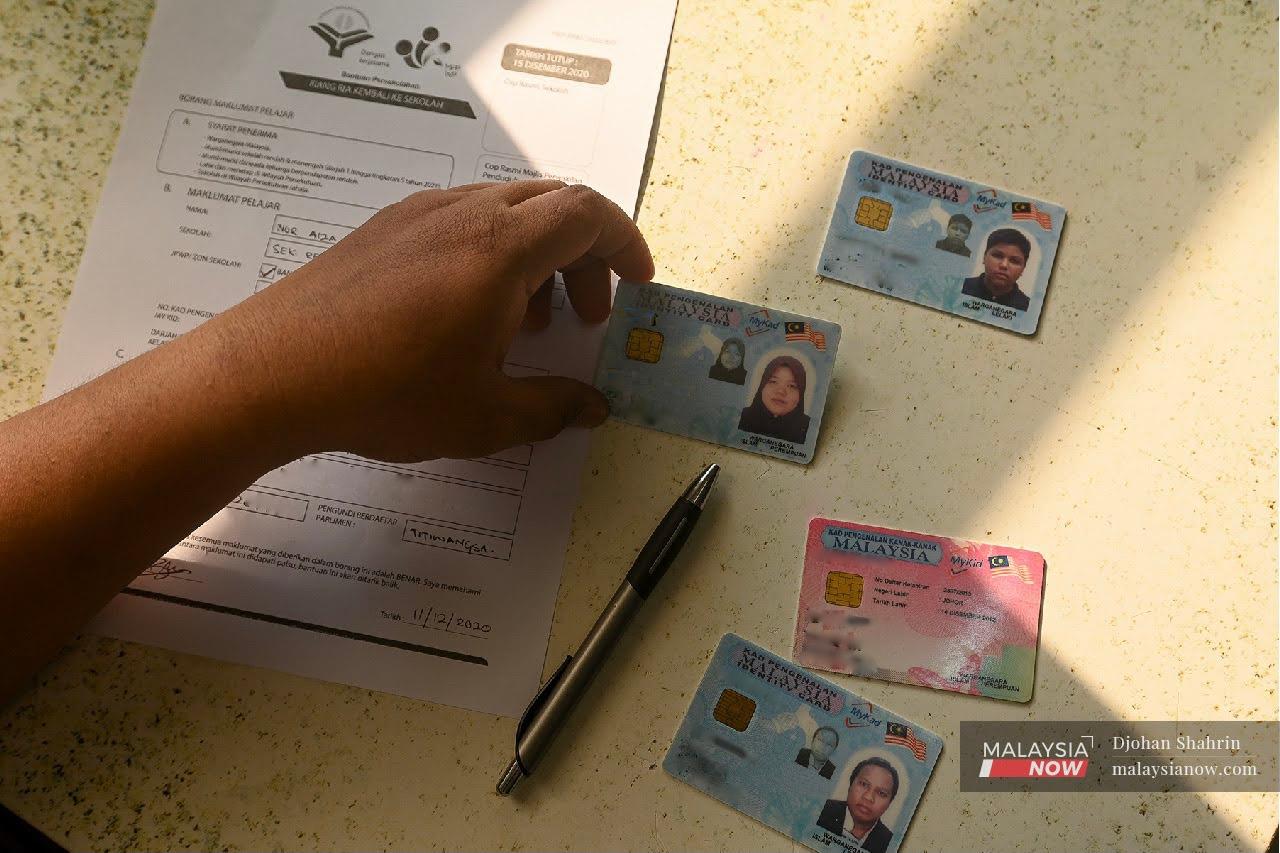Malaysian women fed up with road to nowhere for children’s citizenship
They speak of bureaucratic dead ends and concerns for their children's future.
A group of Malaysian women married to foreign men who have been trying for years to obtain citizenship for their children born abroad are expressing frustration with a system which is inherently pitted against them.
One of them, who called herself Myra, said she has been trying to get Malaysian citizenship for her daughter who was born in her husband’s home country Zambia.
It has been the same old tiring routine for seven years now.
Twice, she said, her application for citizenship for her daughter was rejected without reason.
“When I asked why, they said it is private and confidential,” the 29-year-old told MalaysiaNow.
Myra and her husband got married in 2013. Their second daughter who is three years old has Malaysian citizenship as she was born in Selangor. It’s the citizenship of their oldest child, who is now seven, that is the problem.
“Every time we go out together, my daughter is treated like a foreigner,” Myra said.
“We have to pay more when we go to places like the zoo and the aquarium as she is charged international prices. These are twice as expensive as the charge for locals.”
Further problems arose when her daughter began school early this year. The registration process alone saw Myra running from one location to another in order to get things done.
“Every time we go out together, my daughter is treated like a foreigner.”
For starters, she had to make an official application to the school and obtain permission from the state education department.
“After you get permission, the state education department issues a student visa pass. After that, I had to go back to the school to pay the fees. Then, I had to go back to the department with a copy of the receipt.”
There are also additional fees for foreign students, and she had to fork out more for her daughter’s textbooks as she does not qualify for the textbook loan programme.
Under the Federal Constitution, children born overseas to Malaysian fathers are automatically granted citizenship.
Those born to Malaysian mothers, however, need to apply for citizenship.
National security
Deputy Home Minister Ismail Mohamed Said previously said in the Dewan Rakyat that in other countries, children born overseas follow their father’s citizenship, and as such, there could be dual citizenship for children born abroad to Malaysian women with foreign husbands.
He also cited concerns over national security.
Rights group Lawyers for Liberty however said the same “risk” of dual citizenship exists for children of Malaysian men with foreign spouses.
It also urged the government to consider the rights of Malaysian women to have their children granted citizenship by operation of law, saying this could be done by amending Part II of the Second Schedule of the Federal Constitution to substitute the word “father” with “parent”.
Myra also questioned how children such as her daughter could be labelled as a threat to national security, saying such statements were “rubbish”.
Elly, who married a British man and lives in Bangkok, Thailand, met a similar dead end in her quest to obtain citizenship for her three-month-old daughter.
The 37-year-old started the application process even before her daughter was born but received no response from the embassy.
“She cannot even board a flight as she has no passport.”
“I believe my daughter has the right to Malaysian citizenship until the age of 18,” she told MalaysiaNow.
“So if you ask why I am not applying for British citizenship, it should not even be an issue.”
If anything should happen to her husband, Elly fears that she will not be allowed to bring her daughter back to Malaysia.
“She has no official documentation. She cannot even board a flight as she has no passport,” she said.
Bina Ramanand, founder of the Foreign Spouses Support Group (FSSG) to which both Elly and Myra belong, said the challenges faced by Malaysian women overseas in securing citizenship for their children are “devastating”.
“Many women are unaware of this provision and are let down when they are told that they cannot automatically pass their citizenship to their children just because of their gender,” she told MalaysiaNow.
Subscribe to our newsletter
To be updated with all the latest news and analyses daily.
